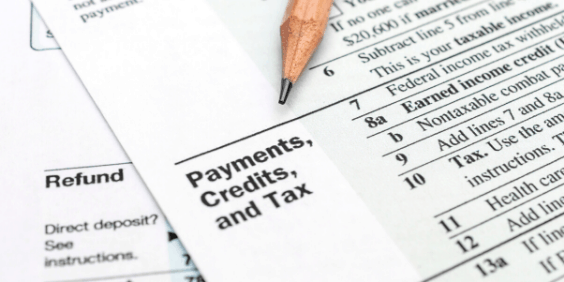Budget 2024 grants CRA expansive new audit powers

This article was prepared with the assistance of MLT Aikins Summer Student Sam Riendeau.
The federal government tabled its most recent budget on April 16, 2024 (“Budget 2024”). It includes a variety of proposals expanding the audit and compliance powers of the Canada Revenue Agency (“CRA”) under the Income Tax Act (the “Act”).
Traditionally, a tax audit has been seen as an administrative process, where a CRA auditor examines the books and records of a taxpayer and proposes adjustments to the characterization and tax treatment of what was originally filed. However, the proposed changes contained in Budget 2024 continue a pre-existing trend of broadening the powers provided to CRA auditors, making the exercise more akin to a legal or regulatory investigation.
Prior to Budget 2021, the CRA could not compel taxpayers to engage in an interview with the CRA. In Canada (Minister of National Revenue) v Cameco Corporation, 2019 FCA 67 (“Cameco”), the Federal Court of Appeal held that while a taxpayer could be compelled to assist an auditor in locating and reviewing records or documents, a taxpayer could not be compelled at the audit stage to answer general questions about tax liability.
After Cameco, amendments introduced in Budget 2021 granted the CRA a new power to compel a “taxpayer or any other person” to be present at a designated location or by video conferencing to answer questions and provide information. The amendments also authorized the CRA to require that questions be answered “in any form specified.”
Budget 2024 takes these powers even further and proposes amendments that would enable CRA auditors to:
- Require that information be provided in a “reasonable manner” (i.e. directing a taxpayer to re-format or compile existing information or documents into a new format or document);
- Compel individuals being questioned to provide answers under oath;
- Require taxpayers providing writing responses to questions to swear to their answers in the form of an affidavit;
- Issue a “notice of non-compliance,” which could be accompanied by penalties of up to $25,000; and
- Impose penalties on matters where CRA has previously obtained a compliance order from the Federal Court. Penalties may be up to 10% of the aggregate amount of tax payable on amounts over $50,000.
Providing a document in “reasonable manner”
One particularly notable change that Budget 2024 proposes would be the requirement of a taxpayer to provide any document to the government in a “reasonable manner.” The addition of this phrase in sections 231.1 and 231.2 suggests CRA auditors may be granted the authority to request that information be provided in a certain format – not necessarily the format of an existing document.
While the addition of the phrase may initially seem innocuous, this is a significant departure from prior jurisprudence. In BP Canada Energy Company v Canada (National Revenue), 2017 FCA 61 (“BP Canada”), the Federal Court of Appeal upheld the distinction between a self-assessment of tax and a self-audit, stating:
Faced with an issue that is reasonably open to debate – I emphasize this point insisting on the fact that the case law is replete with decisions which illustrate the coexistence of arguable issues on both sides of the debate – taxpayers are entitled to file their tax return on the basis most favourable to them. This explains why auditors in conducting audits must engage in extensive poke-and-check exercises, and are essentially left to their own initiative in verifying the amounts reported by the taxpayer. To be clear, although auditors are entitled to be provided with “all reasonable assistance” in performing their audits (paragraph 231.1(d) of the Act), they cannot compel taxpayers to reveal their “soft spots.”
BP Canada has been taken as supporting the idea that taxpayers should not be compelled to create new documents or highlight possible arguments against their filing position during the course of an audit.
These principles are eroded by the proposed amendments in Budget 2024. As currently written, subsection 231.1(1) provides that CRA may obtain copies of documents that currently exist. Requiring a document to be provided in a different manner implies the creation of something new or a document that a taxpayer does not already have. Auditors may even believe it allows them to require taxpayers to compile existing information into new documents or summaries that make the audit easier, in effect outsourcing the work of the audit onto the taxpayer.
Questioning under oath
Budget 2024 also proposes to give the CRA the power to compel a person to provide information, documents or answers to questions by written affidavit, or by oral answers on questioning under oath or affirmation. This provides CRA auditors with the authority to dictate not just the information that must be provided, but also the way in which the information is delivered.
These amendments further underscore the importance of engaging legal counsel to ensure that CRA audits do not result in the disclosure of information that is subject to legal privilege, that is irrelevant or that is not within the audit’s scope.
Penalty for compliance orders
In an effort to underscore the importance of audit compliance, Budget 2024 proposes to introduce new measures to penalize taxpayers who are considered to be in breach of outstanding compliance orders. If the taxpayer has a balance payable of $50,000 for a given taxation year, the CRA may impose a penalty equal to 10% of the total tax payable.
Notice of non-compliance
Another proposed addition to the slate of powers held by the CRA is a “notice of non-compliance.” This may be issued to a taxpayer that is alleged to have failed to comply with a requirement or notice to provide information under sections 231.1, 231.2, or 231.6 of the Act.
Budget 2024 proposes that when a notice of non-compliance is issued to a taxpayer or to a person that does not deal at “arm’s length” with that taxpayer, the normal three-year limitation period on reassessments will be suspended for any taxation year to which the notice relates for the entire length of time that the notice is outstanding. Moreover, a penalty of $50 per day, for up to 500 days (for a maximum penalty of $25,000), will be assessed for the entire period of time that the notice is outstanding.
Conclusion
Budget 2024 expands CRA auditors’ investigatory powers, imposes greater consequences on those alleged not to comply and makes little provision for legal safeguards for taxpayers. Many audited taxpayers do not engage legal counsel until after they are reassessed and may have already divulged sensitive or privileged information.
It is crucial that taxpayers involve an advisor early in the audit process to ensure that they are subject to a fair and focused examination.
If you are engaged in an audit with CRA or have been reassessed, please consider contacting our tax litigation & tax dispute resolution team to speak about your matter.
Note: This article is of a general nature only and is not exhaustive of all possible legal rights or remedies. In addition, laws may change over time and should be interpreted only in the context of particular circumstances such that these materials are not indented to be relied upon or taken as legal advice or opinion. Readers should consult a legal professional for specific advice in any particular situation.




